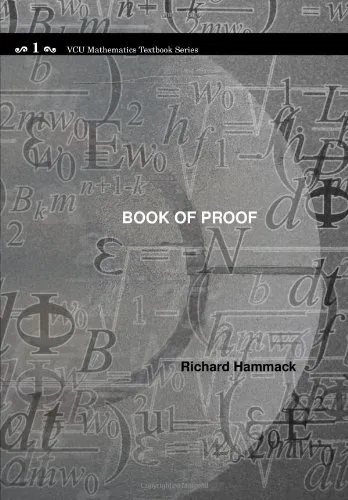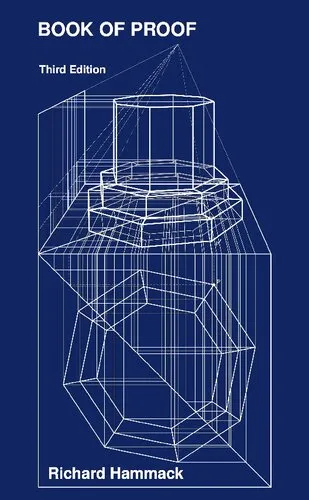Realism and the Aim of Science: From the Postscript to The Logic of Scientific Discovery
4.5
بر اساس نظر کاربران

شما میتونید سوالاتتون در باره کتاب رو از هوش مصنوعیش بعد از ورود بپرسید
هر دانلود یا پرسش از هوش مصنوعی 2 امتیاز لازم دارد، برای بدست آوردن امتیاز رایگان، به صفحه ی راهنمای امتیازات سر بزنید و یک سری کار ارزشمند انجام بدینکتاب های مرتبط:
مقدمه
کتاب "Realism and the Aim of Science: From the Postscript to The Logic of Scientific Discovery" اثری اساسی و مهم از کارل پوپر است که در آن به موضوعات فلسفی مرتبط با علم و واقعگرایی میپردازد. این نوشته با هدف روشنسازی هدف اصلی علم و همچنین بررسی مفهوم Realism، به نقد و تحلیل نظریات مختلف علمی میپردازد.
خلاصهای جامع از کتاب
این کتاب در حقیقت بخشی از نوشتههای پسینی به کتاب مشهور پوپر یعنی "The Logic of Scientific Discovery" است. پوپر در این اثر به دنبال این است که فرضیات و نظریات علمی را به عنوان تئوریهایی موقت و قابل ابطال توصیف کند و نشان دهد که علم تلاش میکند تا با روشهایی آزادانه، اما سیستماتیک، به کشف حقیقت نزدیک شود. او با تجزیه و تحلیل سختگیرانه مبانی علمی، قصد دارد تا نشان دهد که علم نه تنها به دنبال توضیح دنیای واقعیت است، بلکه هدفی انتقادی و پیشرو دارد که دربر دارنده رشد اندیشهها میباشد.
نکات کلیدی
- پذیرش نظریات علمی به عنوان فرضیههایی که میبایست دائما مورد امتحان و نقد قرار گیرند.
- تأکید بر Realism به عنوان نگرشی که در آن علم به عنوان ابزاری برای دستیابی به واقعیتهای جهان مورد بررسی قرار میگیرد.
- افزایش درک نسبت به نقش علم در توسعه فکری و فرهنگی بشر.
جملات معروف از کتاب
"آزادی عقلانی خود یکی از اهداف اصلی علم است، و این آزادی تنها میتواند از طریق انتقاد و اصلاح مداوم کسب شود."
"هر نظریه علمی باید بتواند مورد آزمون تجربی قرار گیرد، و هرگز نباید به عنوان یک حقیقت مسلم پذیرفته شود."
چرا این کتاب مهم است
این کتاب به دلیل نگاه عمیق و تحلیلی خود به علم و فلسفه از اهمیت ویژهای برخوردار است. پوپر با بررسی ریشهای موضوعات مرتبط با علم میتواند به مخاطبان این کتاب کمک کند تا دیدگاه دقیقتری نسبت به هدف و ماهیت علم داشته باشند. با توجه به تأثیرگذار بودن نظریات پوپر بر فلسفه علم در قرن بیستم، این کتاب همچنان یکی از منابع مهم برای درک مسائلی مانند Realism و روششناسی علمی باقی مانده است. این اثر برای هر فردی که به فهم عمیقتر فلسفه علم و نقد علمی علاقهمند است، از اهمیت ویژهای برخوردار است.
Introduction to 'Realism and the Aim of Science'
Welcome to an exploration of the groundbreaking work, "Realism and the Aim of Science," a vital contribution to the philosophy of science by Karl Popper. As part of the acclaimed Postscript to "The Logic of Scientific Discovery," this book delves into the themes of scientific realism and the methodology of science, providing critical insights into the nature and practice of scientific inquiry.
Detailed Summary of the Book
"Realism and the Aim of Science" focuses on the central philosophical issues concerning the aim and practice of scientific investigation. Karl Popper, a formidable figure in 20th-century philosophy, argues in favor of scientific realism, which posits that scientific theories aim to describe, explain, and predict aspects of the physical world. Unlike instrumentalism, realism maintains that scientific theories can inform us about unobservable phenomena, aligning more closely with the practical and theoretical pursuits in the scientific domain.
The book also elaborates on Popper's well-known criterion of falsifiability, emphasizing its significance in distinguishing scientific theories from non-scientific ones. Popper highlights that scientific inquiry should aim at bold conjectures and attempts to refute them. According to Popper, science progresses through conjectures and refutations rather than seeking ultimate verification.
Another cornerstone of this book is Popper's rejection of the inductive method, where he argues that scientific knowledge advances through deductive testing rather than inductive accumulation of observations. He critiques the limitations of induction and points out the potential for observational data to be guided by preconceived theories.
Key Takeaways
- Scientific Realism: Popper asserts that scientific theories aim to describe both observable and unobservable aspects of the world.
- Falsifiability: A scientific theory should be structured so that it can be refuted by empirical data if it is false.
- Conjectures and Refutations: Progress in science results from bold proposals being subjected to rigorous testing and criticism.
- Critique of Induction: Popper challenges the traditional inductive approach, favoring deduction and critical scrutiny.
Famous Quotes from the Book
"Science is perhaps the only human activity in which errors are systematically criticized and fairly often, in time, corrected."
"Theories are nets cast to catch what we call 'the world': to rationalize, to explain, and to master it. We endeavour to make the mesh ever finer and finer."
Why This Book Matters
"Realism and the Aim of Science" stands as a crucial text in understanding the philosophy underpinning scientific endeavors. Karl Popper revolutionizes the perception of science not merely as an accumulation of knowledge but as a dynamic process of critical inquiry and correction. This work encourages scientists, philosophers, and inquisitive thinkers to adopt a mindset of skepticism and continuous questioning, paving the way for genuine progress in knowledge.
The book is instrumental for those seeking to comprehend the philosophical debates surrounding the methods of the scientific study, and remains relevant to contemporary discussions in the philosophy of science and epistemology. The emphasis on falsifiability and critical discussion challenges researchers to uphold rigorous standards, making it a timeless guide for understanding and conducting scientific research.
دانلود رایگان مستقیم
شما میتونید سوالاتتون در باره کتاب رو از هوش مصنوعیش بعد از ورود بپرسید
دسترسی به کتابها از طریق پلتفرمهای قانونی و کتابخانههای عمومی نه تنها از حقوق نویسندگان و ناشران حمایت میکند، بلکه به پایداری فرهنگ کتابخوانی نیز کمک میرساند. پیش از دانلود، لحظهای به بررسی این گزینهها فکر کنید.
این کتاب رو در پلتفرم های دیگه ببینید
WorldCat به شما کمک میکنه تا کتاب ها رو در کتابخانه های سراسر دنیا پیدا کنید
امتیازها، نظرات تخصصی و صحبت ها درباره کتاب را در Goodreads ببینید
کتابهای کمیاب یا دست دوم را در AbeBooks پیدا کنید و بخرید
1519
بازدید4.5
امتیاز0
نظر98%
رضایتنظرات:
4.5
بر اساس 0 نظر کاربران
Questions & Answers
Ask questions about this book or help others by answering
No questions yet. Be the first to ask!
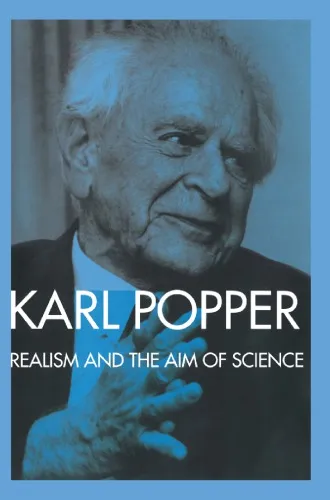

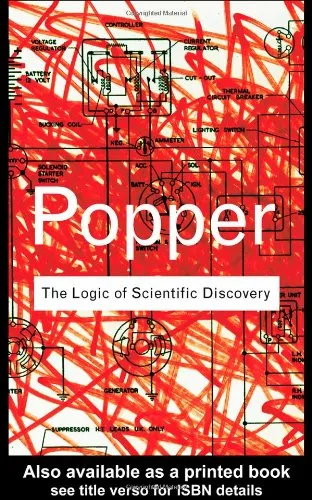
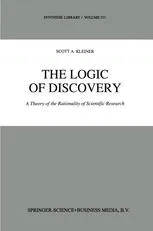
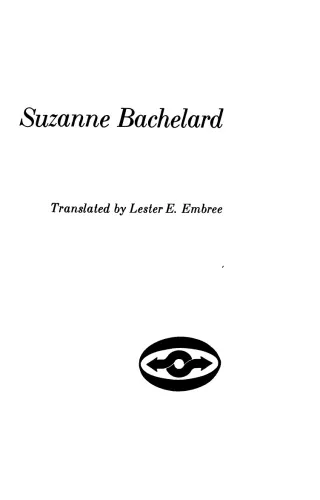
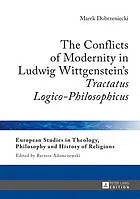
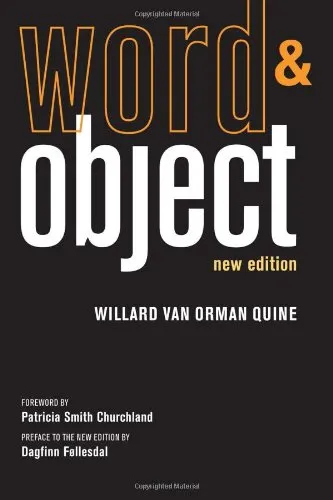

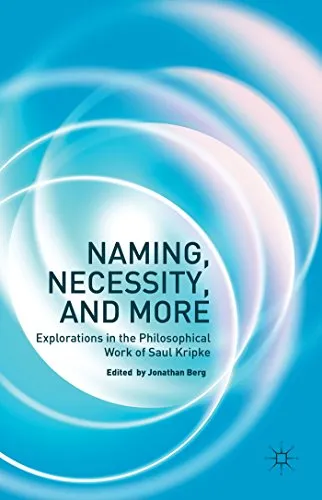
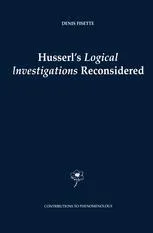
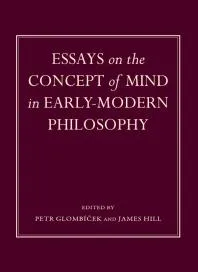
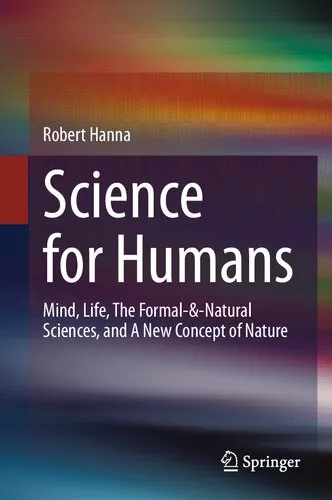
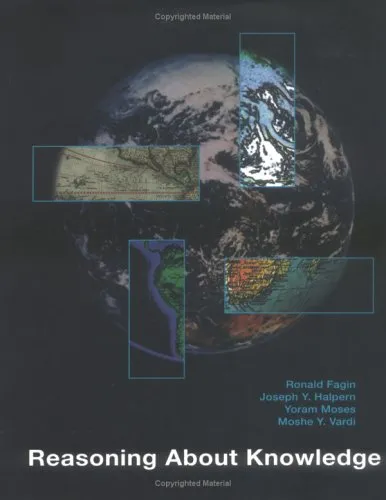
![Modalities for Reasoning about Knowledge and Quantities [PhD Thesis]](https://s3.refhub.ir/images/thumb/Modalities_for_Reasoning_about_Knowledge_and__16051.webp)
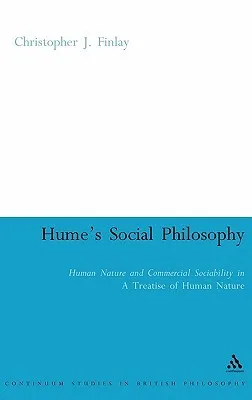
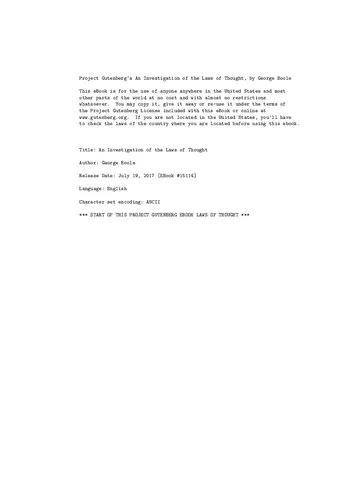
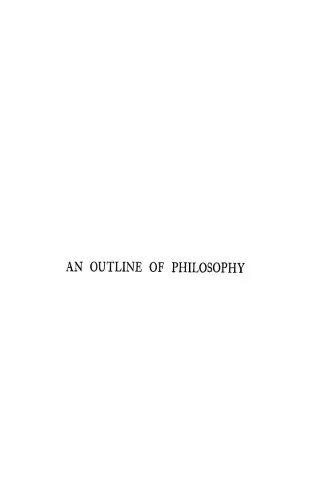
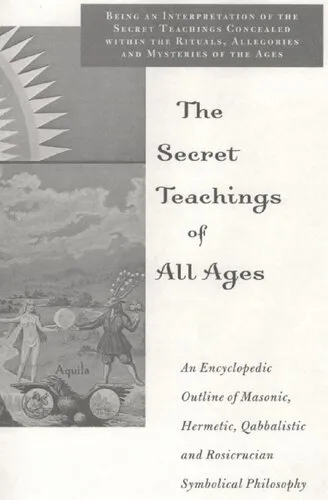
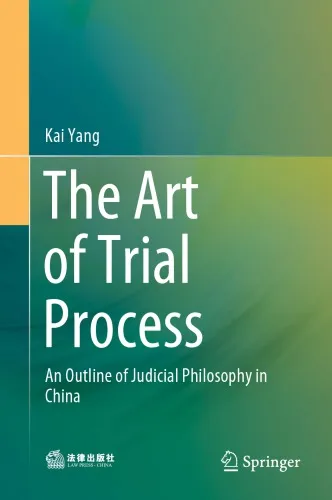



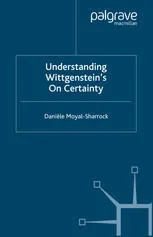
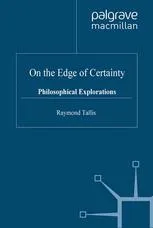
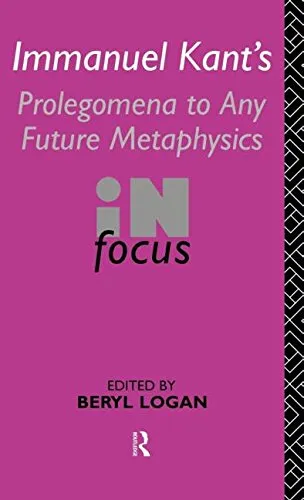
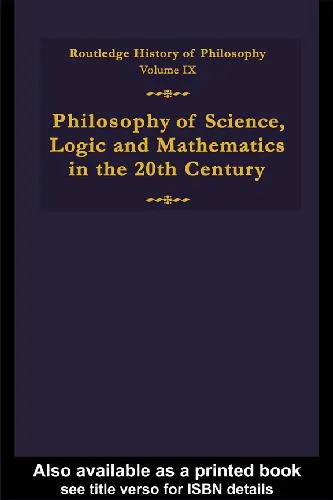
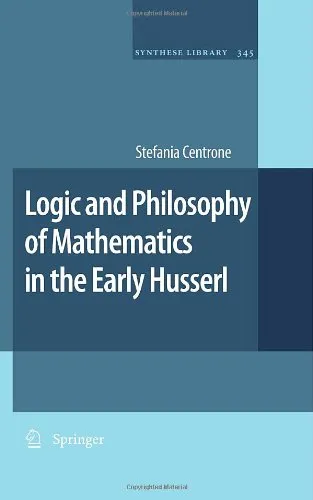
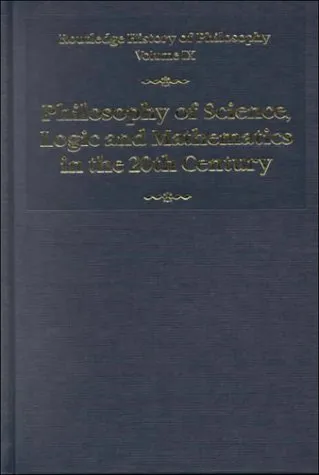

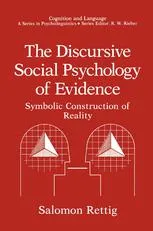
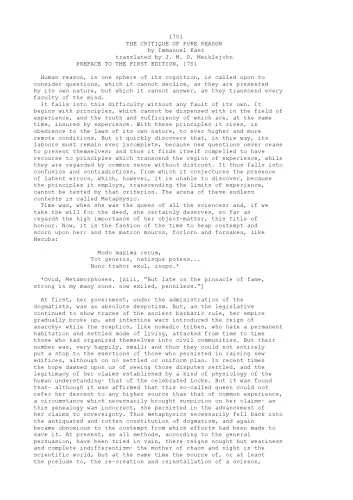
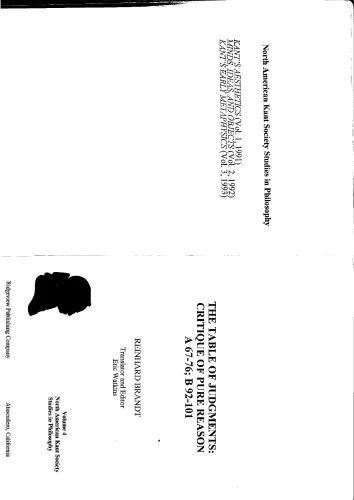
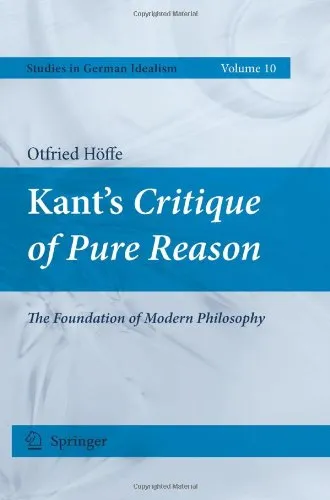
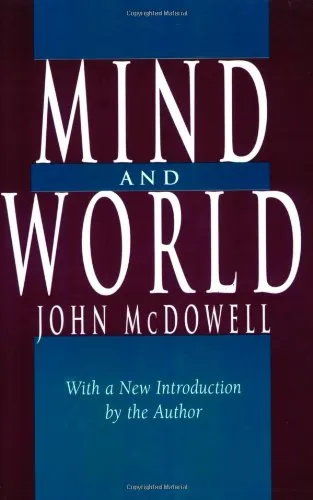
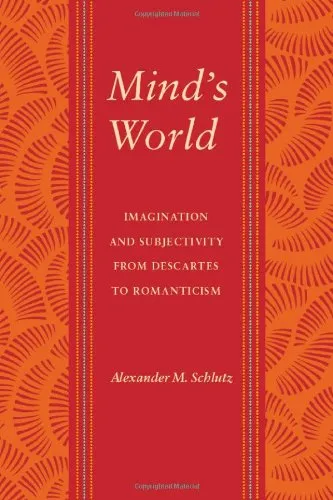
![How to Prove It: A Structured Approach, Third Edition [3rd Ed] (Instructor's Solution Manual, Solutions)](https://s3.refhub.ir/images/thumb/How_to_Prove_It__A_Structured_Approach__Third_35831.webp)
